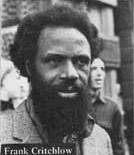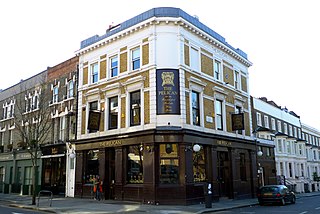
Legal drama is a genre of film and television that generally focuses on narratives regarding legal practice and the justice system. The American Film Institute (AFI) defines "courtroom drama" as a genre of film in which a system of justice plays a critical role in the film's narrative. Legal dramas have also followed the lives of the fictional attorneys, defendants, plaintiffs, or other persons related to the practice of law present in television show or film. Legal drama is distinct from police crime drama or detective fiction, which typically focus on police officers or detectives investigating and solving crimes. The focal point of legal dramas, more often, are events occurring within a courtroom, but may include any phases of legal procedure, such as jury deliberations or work done at law firms. Some legal dramas fictionalize real cases that have been litigated, such as the play-turned-movie, Inherit the Wind, which fictionalized the Scopes Monkey Trial. As a genre, the term "legal drama" is typically applied to television shows and films, whereas legal thrillers typically refer to novels and plays.
Alex Michael Jennings is an English actor of the stage and screen, who worked extensively with the Royal Shakespeare Company and National Theatre. For his work on the London stage, Jennings received three Olivier Awards, winning for Too Clever by Half (1988), Peer Gynt (1996), and My Fair Lady (2003). He is the only performer to have won Olivier awards in the drama, musical, and comedy categories.

Leighton Rhett Radford "Darcus" Howe was a British broadcaster, writer and racial justice campaigner. Originally from Trinidad, Howe arrived in England as a teenager in 1961, intending to study law and settling in London. There he joined the British Black Panthers, a group named in sympathy with the US Black Panther Party.
Love City Groove were a musical group who represented the United Kingdom in the Eurovision Song Contest 1995, with their self-titled song after being the winner in a public vote. The song finished tenth with 76 points; and peaked at No. 7 on the UK Singles Chart.
Rahasya Rudra Narayan, commonly known as Rudy Narayan, was a barrister and civil rights activist in Britain. He migrated to Britain in the 1950s from Guyana.

Selma James is an American writer, and feminist and social activist who is co-author of the women's movement book The Power of Women and the Subversion of the Community, co-founder of the International Wages for Housework Campaign, and coordinator of the Global Women's Strike.
The Mangrove was a Caribbean restaurant in Notting Hill, London, England. It was founded in 1968 and run by civil rights activist Frank Crichlow, eventually closing in 1992. It is known for the trial of a group of British black activists dubbed "the Mangrove Nine", who were tried for inciting a riot at a 1970 protest against the police targeting the restaurant.

Frank Gilbert Crichlow was a British community activist and civil rights campaigner, who became known in 1960s London as a godfather of black radicalism. He was a central figure in the Notting Hill Carnival. His restaurant, The Mangrove in All Saints Road, served for many years as the base from which activists, musicians, and artists organised the event.

Racism in the United Kingdom refers to negative attitudes and views on race or ethnicity within the viewpoints of groups or individuals or existing systemically in the United Kingdom. The extent and the targets of racist attitudes in the United Kingdom have varied over time. It has resulted in cases of discrimination, riots and racially motivated murders. Racism was uncommon in the attitudes and norms of the British class system during the 19th century, in which race mattered less than social distinction: an African tribal chief was unquestionably superior to an English costermonger. Use of the word "racism" became more widespread after 1936, although the term "race hatred" was used in the late 1920s by sociologist Frederick Hertz. Laws were passed in the 1960s that specifically prohibited racial segregation.
The British Black Panthers (BBP) or the British Black Panther movement (BPM) was a Black Power organisation in the United Kingdom that fought for the rights of black people and racial minorities in the country. The BBP were inspired by the US Black Panther Party, though they were unaffiliated with them. The British Panthers adopted the principle of political blackness, which included activists of black as well as South Asian origin. The movement started in 1968 and lasted until around 1973.

Altheia Jones-LeCointe is a Trinidadian physician and research scientist also known for her role as a leader of the British Black Panther Movement of the 1960s and 1970s. Jones-LeCointe came to public attention in 1970 as one of the nine protestors, known as the Mangrove Nine, arrested and tried on charges that included conspiracy to incite a riot, following a protest against repeated police raids of The Mangrove restaurant in Notting Hill, London. They were all acquitted of the most serious charges and the trial became the first judicial acknowledgement of behaviour motivated by racial hatred, rather than legitimate crime control, within the Metropolitan Police.

Barbara Beese is a British activist, writer, and former member of the British Black Panthers. She is most notable as one of the Black activists known as the Mangrove Nine, charged in 1970 with inciting a riot, following a protest against repeated police raids of The Mangrove, a Caribbean restaurant in Notting Hill, west London. They were all acquitted of the most serious charges and the trial became the first judicial acknowledgement of behaviour motivated by racial hatred, rather than legitimate crime control, within the Metropolitan Police.

Mangrove is a 2020 historical drama film directed by British director Steve McQueen and co-written by McQueen and Alastair Siddons, about the Mangrove restaurant in west London and the 1971 trial of the Mangrove Nine. It stars Letitia Wright, Shaun Parkes, Malachi Kirby, Rochenda Sandall, Alex Jennings and Jack Lowden.

Arnon Nampa is a Thai human rights lawyer and activist. He is renowned in Thailand for openly criticizing the monarchy of Thailand, breaking the country's taboo. He was initially regarded as a prominent human rights defender during his tenure as a human rights lawyer and later accumulated multiple criminal charges due to his active involvement in pro-democracy activism. He is considered to be one of the leading figures of the 2020–2021 Thai protests, co-leading reforms to the monarchy reform movement by non-elite people for first time in Thai history.
Ian Alexander Macdonald QC was a Scottish barrister who was "a pioneer of committed anti-racist legal practice" in the UK. During the 1970s he appeared in many notable political and human rights cases, including those involving the Mangrove Nine, the Angry Brigade, and the Balcombe Street siege. He took silk in 1988 and was leader of the British bar in immigration law for five decades until his death at the age of 80.

Rhodan Gordon was a Black British community activist, who migrated to London from Grenada in the 1960s. He came to public attention in 1970 as one of the nine protestors, known as the Mangrove Nine, arrested and tried on charges that included conspiracy to incite a riot, following a protest against repeated police raids of The Mangrove restaurant in Notting Hill, London. They were all acquitted of the most serious charges and the trial became the first judicial acknowledgement of behaviour motivated by racial hatred, rather than legitimate crime control, within the Metropolitan Police.
Sasha Johnson is a British woman who has been an activist and member of Taking the Initiative Party (TTIP). A student of Ruskin College, she was involved in the Rhodes Must Fall protest, and with Black Lives Matter and Kill the Bill protests.

All Saints Road is a street in London's Notting Hill district, best known as being an important centre for the UK's Afro-Caribbean community.
Institutional racism has been acknowledged in the London Metropolitan Police since at least the 1970's and has recently received significant coverage.
The Universal Coloured People's Association (UCPA) was a black power organisation in the United Kingdom from June 1967 to July 1970.












